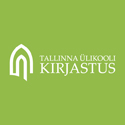Õppematerjali mõju gümnaasiumiõpilaste õpimotivatsioonile: „Praktiline eesti keel teise keelena: B2, C1” [The influence of learning material on students’ motivation to learn: Practical Estonian as a second language. B2, C1.]
Abstract
Learning motivation connected to a second language is affected by cultural context (the value of language studies, belief in the likelihood of success etc.) and educational context (the study programme, the teacher, using materials, the study group etc.). The article discusses the influence of one component of the educational context – learning materials – on the motivation to learn Estonian as a second language, based on the example of the Practical Estonian B2, C1 workbook. The workbook is a new example of study materials for Estonian as a second language for use in secondary schools, one goal of the creation of which was to increase students’ motivation to learn. For this purpose, the following characteristics of motivating learning activities were taken into consideration when creating the workbook: the meaningfulness of the topics to students, the use of active learning methods, the authenticity of the texts and tasks, and suitably difficult challenges and support. The workbook was tested during its compilation in one secondary school class and, after its completion, as a homework component of the training of secondary school teachers of Estonian as a second language. Feedback was collected from the teachers in the form of diaries. The teachers felt that the students were most motivated by tasks carried out using active study methods that provided appropriate challenges (role play, playful vocabulary and grammar exercises, and a project task in the language environment). Students were motivated by topics that were meaning ful to them (both “youth” topics and topics of overall human importance). The authentic reading tasks had an average level of motivation, while the motivation level of the authentic listening tasks was decreased by the fact that the students were not used to doing them. The students also liked tasks that provided the necessary support in a new way (learning phrases that enabled them to express language functions and practising process writing). Analysis of the feedback also indicated that teachers had room for improvement in regard to teaching methods: they were not always capable of presenting tasks in a motivating way and were not used to using active teaching methods, letting students make their own choices or giving students supportive and motivating feedback.
Keywords
meaningful topics, authentic texts and tasks, active learning, appropriate challenge and support
Full Text:
PDFRefbacks
- There are currently no refbacks.
Published by / Kirjastaja:

ISSN 2504-6616 (print/trükis)
ISSN 2504-6624 (online/võrguväljaanne)
